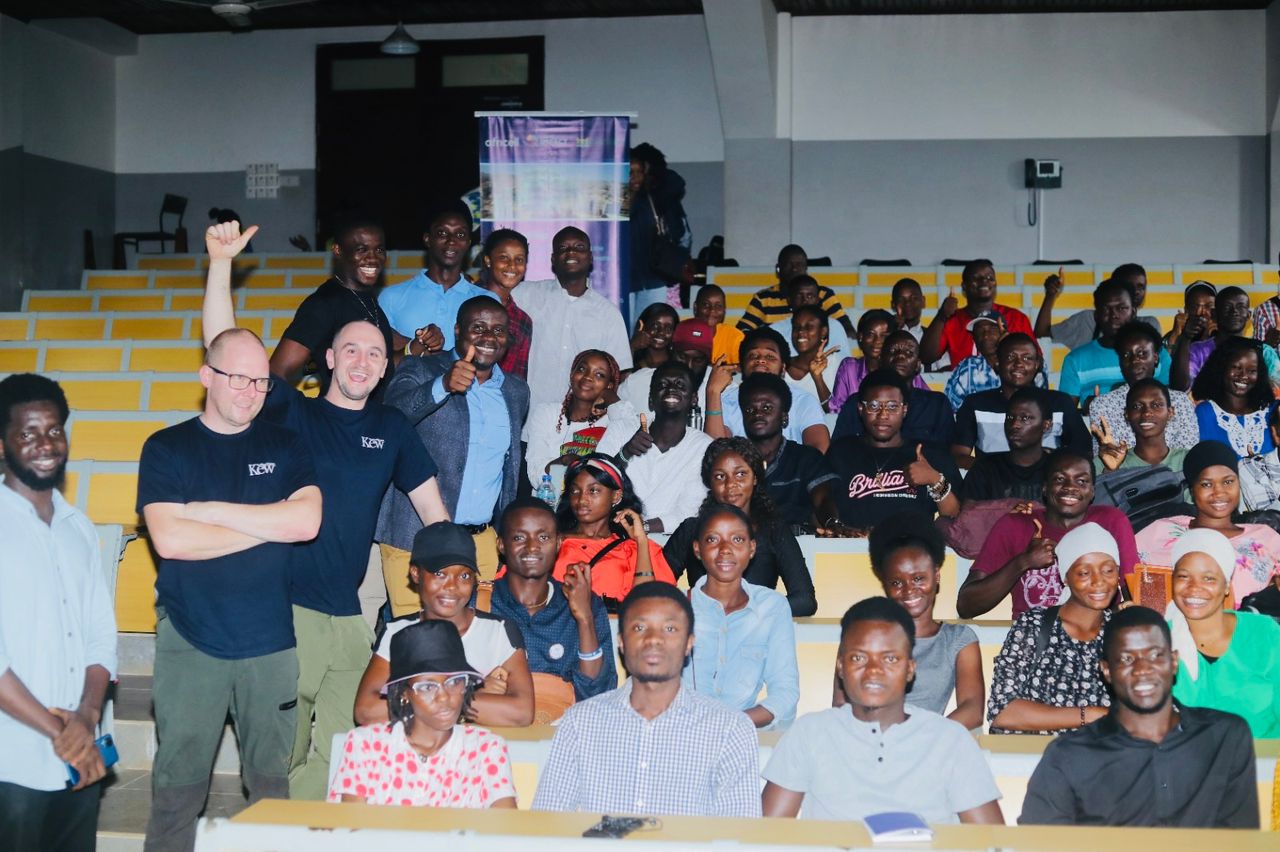The Africell Impact Foundation, in collaboration with the Royal Botanic Gardens, recently organized a public lecture for students from the Department of Biological Sciences at Fourah Bay College (FBC), University of Sierra Leone. The event, themed “Navigating the Future: Ensuring the Resilience of Trees in an Evolving Climate,” aimed to empower students with insights into climate resilience and urban biodiversity.
Targeting FBC’s Biological Sciences students, the workshop featured a presentation from Kevin Martin, Head of Tree Collection at Kew Gardens—a globally recognized center for the study of trees and plants. Martin explained how urbanization is altering local climates, emphasizing the phenomenon known as the “urban heat island” effect. “The global urban population now exceeds the rural population and is projected to surpass six billion by the 2050s,” Martin stated.
Adding that, “As a result, society and our urban infrastructure will be increasingly exposed to climate change impacts, driven both by greenhouse gas emissions and by emerging urban microclimates.”
Andrew S. Fatoma, Chief Administrative and Human Resources Officer at Africell, underscored the company’s commitment to corporate social responsibility, highlighting Africell’s nineteen-year history of community support, stating, “Africell’s impact is felt through initiatives like the Africell Impact Foundation and other humanitarian projects. We will not stop as a company—we will continue to partner with Sierra Leoneans, supporting Fourah Bay College and other institutions.”
Fatoma further reassured students that Africell remains dedicated to providing quality internet and improved service delivery.
Dr. Okoni Williams, Head of the Department of Biological Sciences at FBC, proudly noted that one of his department’s student had previously worked with the Royal Botanic Gardens, Kew—a relationship he described as invaluable.
“Our department has strong ties with Kew Gardens, particularly in relation to projects like Bumbuna and Africa Minerals,” Dr. Williams shared. He also highlighted a significant departmental achievement: the discovery of a previously undocumented plant species in Sierra Leone. “Kew has been instrumental in our work on plant science,” he added.
Dr. Williams encouraged students to take full advantage of the experts’ insights from Kew, emphasizing that the knowledge gained could contribute to addressing climate challenges in Sierra Leone. He also appealed to Africell to improve internet connectivity on campus, explaining that the campus’s challenging topography often limits students’ access to online resources during lectures.

